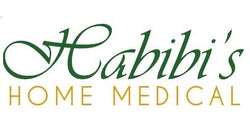Eclipses are captivating celestial events that offer a rare glimpse into the cosmic dance of the sun, moon, and Earth. Whether it's a solar eclipse, with the moon passing between the sun and Earth, or a lunar eclipse, where Earth's shadow falls on the moon, witnessing these phenomena can be an awe-inspiring experience. However, it's crucial to prioritize safety when observing an eclipse to protect your eyes and ensure a memorable yet risk-free viewing experience. In this guide, we'll explore the best practices for safely watching an eclipse.
1. Use Certified Eye Protection:
- Never look directly at the sun during a solar eclipse without proper eye protection. The sun's intense rays can cause severe eye damage or even permanent blindness.
- Use certified solar viewing glasses that meet the ISO 12312-2 international safety standard. Check for the manufacturer's label to ensure they provide adequate protection.
- Avoid using sunglasses, homemade filters, or other makeshift devices, as they do not offer sufficient protection from the sun's harmful rays.
2. Properly Filter Telescopes and Binoculars:
- If you plan to use telescopes or binoculars to observe the eclipse, ensure they are equipped with solar filters specifically designed for solar viewing.
- Never look through an unfiltered telescope or binoculars at the sun, as the concentrated sunlight can cause irreversible eye damage in an instant.
- Double-check that the solar filters are securely attached to the front of the telescope or binoculars and are in good condition before use.
3. Explore Alternative Viewing Methods:
- If you don't have access to certified solar viewing glasses or filtered telescopes/binoculars, there are alternative ways to safely observe a solar eclipse.
- Create a pinhole projector by poking a small hole in a piece of cardboard and projecting the sun's image onto a surface, such as a piece of paper or the ground.
- Use a solar viewer or eclipse glasses that are specifically designed for safe solar viewing. These devices block out harmful radiation while allowing you to see the sun's image clearly.
4. Be Mindful of Children and Pets:
- Educate children about the importance of eye safety during an eclipse and supervise them closely to prevent accidental exposure to the sun.
- Keep pets indoors or in a shaded area during the eclipse to protect their eyes from potential harm. Animals may be curious and inadvertently look at the sun, so take precautions to keep them safe.
5. Stay Informed and Enjoy the Experience:
- Stay updated on eclipse events and viewing opportunities through reputable sources such as NASA, local observatories, or astronomy organizations.
- Plan ahead and choose a safe viewing location with unobstructed views of the sky and minimal light pollution.
- Take time to appreciate the beauty and wonder of the eclipse, but prioritized safety above all else. Remember that there will be future eclipse events to enjoy.
Safely watching an eclipse is a thrilling experience that allows us to connect with the universe in a profound way. By following these safety tips and guidelines, you can enjoy the spectacle of an eclipse without risking your eyesight or well-being. So gather your certified viewing glasses, set up your pinhole projector, and get ready to witness the magic of the next eclipse in a safe and responsible manner.






